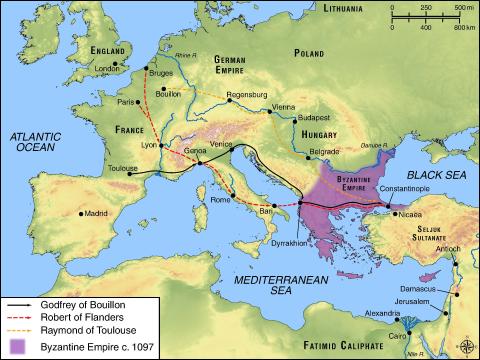Preaching the First Crusade
[1.1.2] Ait namque dominus apostolicus “Frātrēs, vōs oportet multa patī prō nōmine Chrīstī, vidēlicet miseriās, paupertātēs, nūditātēs, persecūtiōnēs, egestātēs, īnfirmitātēs, famēs, sitēs et alia huiusmodī, sīcuti Dominus ait suīs discipulīs: ‘Oportet vōs patī multa prō nōmine meō’, et: ‘Nōlīte ērubēscere loquī ante faciēs hominum; ego vērō dabō vōbīs ōs et ēloquium’, ac deinceps: ‘Persequētur vōs larga retribūtiō’.” Cumque iam hic sermō paulātim per ūniversās regiōnēs ac Galliārum patriās coepisset crēbrēscere, Francī audientēs tālia prōtinus in dextrā crucem suere scapulā, dīcentēs sēsē Chrīstī ūnanimiter sequī vestīgia, quibus dē manū erant redēmptī Tartareā. Iamiamque Galliae suīs remōtae sunt domibus.

